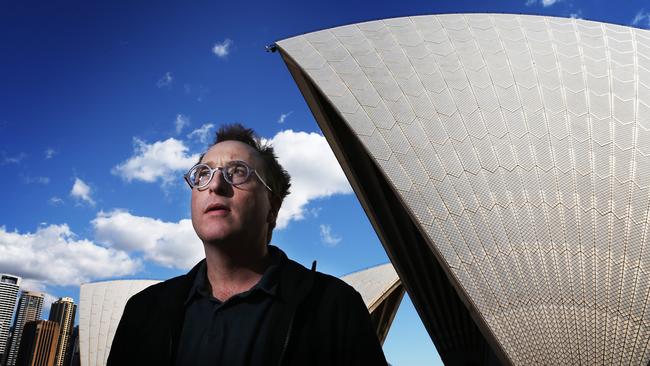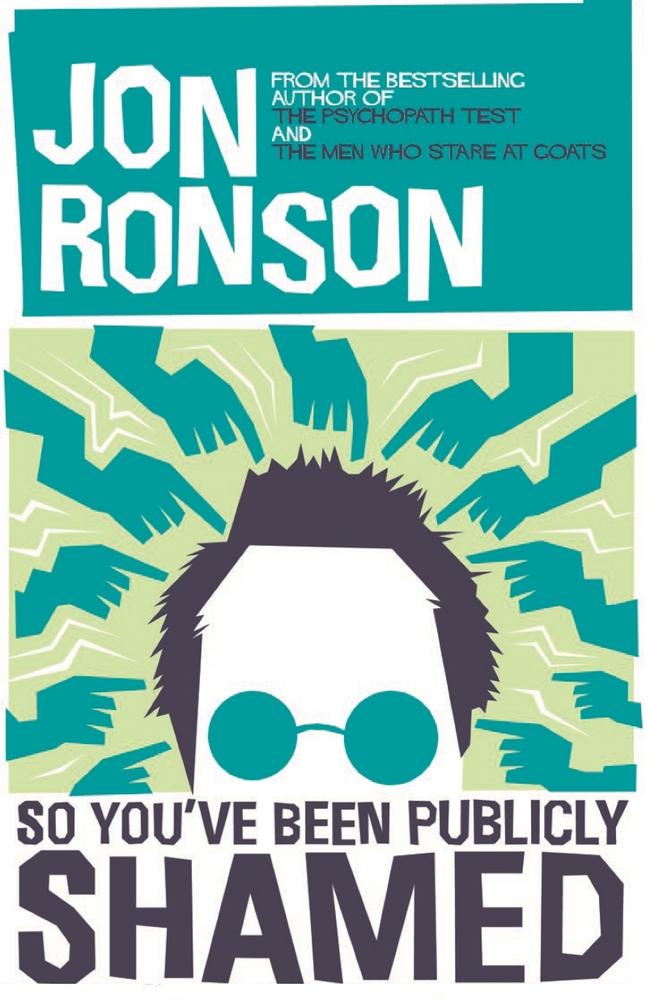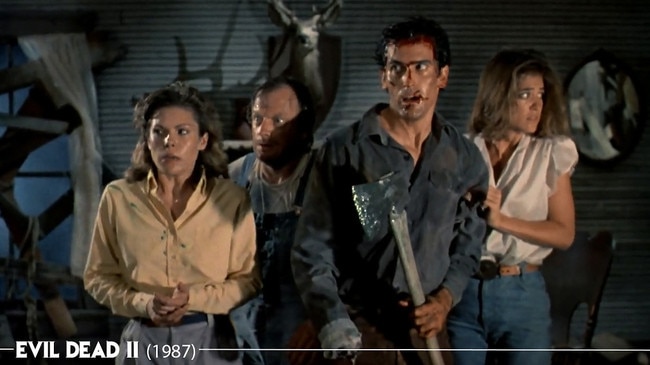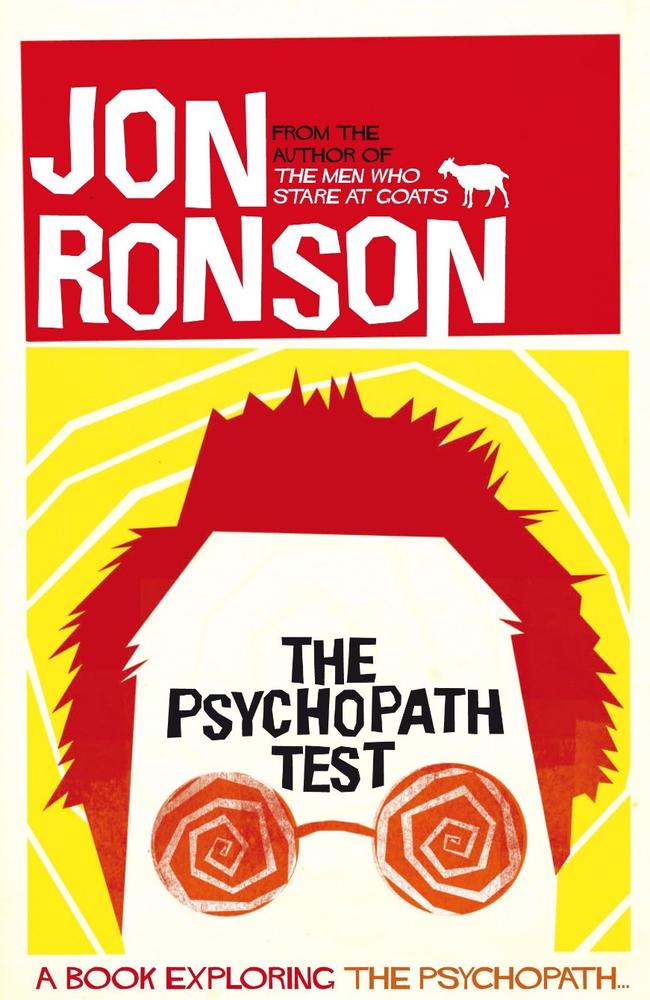Jon Ronson: ‘It’s the same war all over again’
Jon Ronson says cancel culture has been brewing for years. Now the journalist and author has made a BBC Radio 4 series on what the culture wars are really about.

In the late 1980s, Jon Ronson was a student running the film club at the Polytechnic of Central London when he screened The Evil Dead. The schlock-horror film features a scene in which a woman is raped by a tree. “The next day the boyfriend of the women’s officer beat me up,” he says, laughing.
It was his first taste of the culture wars. Now, almost 40 years later, the journalist and bestselling author is wading back in with a new eight-part series for BBC Radio 4. In Things Fell Apart Ronson tackles thorny issues such as trans rights, the QAnon cult and cancel culture. It’s a bold step for a man who says he is pathologically averse to conflict. But he set out determined not to be sucked in.
“The problem with reporting on the culture wars is that it tends to become a part of the culture wars,” Ronson, 54, says from his home near New York. “It tends to be partisan, to want to stoke the flames, and I thought: ‘What would happen if I didn’t do any of those things?’ ”
Ronson describes the culture wars as “anything people shout at each other about online” but it’s more visceral than that. He remembers spending time with evangelical Christians in Britain in the 1990s when they were campaigning against gay marriage.
“One of them looked so angry. He said to me, ‘They’re trying to take what’s ours.’ ” The argument was absurd, he says, but it summed up what the culture wars are really about: “It is the cultural battle for one set of values,” says Ronson.
It isn’t the subjects of the various battles that interest Ronson as much as the people who are swept up in them and the, often unintended, consequences. For instance, he meets the first person to be cancelled online – for telling a tasteless joke. Later episodes will tackle feminism and trans rights.
You need to go back to understand the present, Ronson says; “When you trace the culture wars from the 1970s to today, there is an argument that it’s the same war all over again.” There is a quote he came across while researching the series that sums it up well: “The past doesn’t repeat itself, it rhymes.”
“That’s a good way of thinking about it,” he says. What has changed is the internet, and this series has brought Ronson, who dabbled in radio and film before he became a journalist, back to familiar terrain.
Ronson is still revered as a prophet of digital behaviour for his 2015 book So You’ve Been Publicly Shamed, a prescient warning of the toxic landscape that was developing online. In it he told stories such as that of Justine Sacco, who made a bad-taste Twitter joke about Africa and AIDS as she got on a plane. By the time she had landed it had gone viral and she had lost her job.

He was right about all of it and hasn’t been able to escape the subject since. Friends call him the “imam of shame” because people still contact him when they’re being chased by an angry Twitter mob.
“I have put a lot of shamed people in touch with one another over the years,” Ronson says. He mentions high-profile comedians, but won’t betray confidence by giving me their names. “Shaming can have a very profound, negative psychological impact on you, much more so than I think the people doing the shaming realise, so there’s a big need to heal that wound by finding like-minded people who’ve been through the same experiences.”
Professionally he has been avoiding social media. “It is very easy in this day and age for journalists to become a meme,” he says. Ronson is happiest navigating a subculture. He has a gift for finding human stories in dark places. He has made several podcasts focusing on the porn industry, including an investigation into the death of porn star August Ames, who died by suicide in 2017.
Ronson was born in Cardiff but moved to the US eight years ago with his wife Elaine and son Joel, but he is, in some ways, an unlikely expat, a man addicted to subtlety in the land of the big and the brash.
It is, however, the perfect place from which to explore modern culture wars because the US is the birthplace of all of them.

“In the first half of the modern culture wars, from the early 1970s through the early 1990s, the escalators tended be Christians on the political right,” Ronson says. But since the advent of the internet and voiceless people being given a voice “those roles have flipped”, he says. “These days it seems to be people on the left who are doing the escalating.”
Culture wars are not an intrinsically bad thing, Ronson says. Without the push-pull of progress, women, for example, still would be at home going quietly insane. He is more interested in what happens when people lose themselves to a cause.
“I started realising that there were people out there who had become so consumed in the culture war, even before the pandemic,” he says, “that it was impacting their health disproportionately. It was harming them.”
One consequence is hysteria. In an extraordinary episode of the series, Ronson meets Kelly Michaels, a former primary school teacher who not only stood trial but spent five years in jail after being falsely accused of abusing 31 children in the satanic panic that swept America in the late 1980s.
Michaels, who was then 23, was accused of licking peanut butter off the children and playing Jingle Bells on the piano in the nude. Michaels was fully exonerated in 1994 and is now a churchgoing mother of seven still living with the psychological scars.
There is an obvious parallel with the current frenzies around anti-vax and QAnon. Ronson spent time interviewing conspiracy theorists such as David Icke and Alex Jones for his book Them: Adventures with Extremists, published in 2001, and says all the signs were there.
“You wouldn’t normally link believers in wellness with believers in satanic vows,” he says. What brought them together was the internet. “The appetite was always there, these factions just found each other on Facebook, on Twitter, on YouTube.”

That the internet has intensified disputes is not surprising, Ronson says, because it was designed to do exactly that. “The ferocity with which these battles are now fought is very much the result of the libertarian engineering culture that created the internet. They created this minefield and we are the ones now stepping through it,” he says.
The internet’s big companies are not the only ones to have seen profit in discord. You see it in Donald Trump’s politics, Ronson says, in “oppositional and adversarial” journalism. You see it on British game shows: “I’ve been on them. It’s like being in a weird kind of prison where everyone screams at you and how well you respond to that is how well you do.”
The present atmosphere is unsustainable, Ronson says, but he is sceptical about attempts to criminalise pile-ons, which is being considered in the UK’s Online Safety Bill. Neither can we rely on big tech to sort these problems out for us. “Facebook isn’t going to help,” Ronson says, laughing.
What will ultimately happen is a rebellion of the young. “This generation is imposing a set of rules on themselves that they’re not going to find it possible to live up to,” he says. “I think another generation will come along and be unhappy with those rules. They will want to cut loose.”
In the meantime, we are getting better at not being swept along. “I think we’re at a stage where it’s fine to fight back, like we’re beyond the stage of carefully worded apologies. If you’ve been misrepresented, it’s OK to make some noise. I think you’ll have more support than you might have done a few years ago.”
Ultimately it is up to us to navigate the culture wars harmoniously, by looking at issues with curiosity and compassion.
“Be the positive change you want to see in the world,” Ronson says. “But perhaps I’ve just been in America for too long.”
Jon Ronson’s new series Things Fell Apart is streaming on BBC Sounds bbc.co.uk/sounds/series/m0011cpr
The Sunday Times
